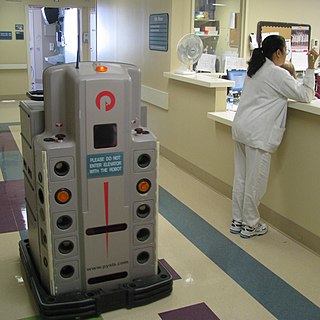Related Research Articles
A minimum wage is the lowest remuneration that employers can legally pay their employees—the price floor below which employees may not sell their labor. Most countries had introduced minimum wage legislation by the end of the 20th century. Because minimum wages increase the cost of labor, companies often try to avoid minimum wage laws by using gig workers, by moving labor to locations with lower or nonexistent minimum wages, or by automating job functions. Minimum wage policies can vary significantly between countries or even within a country, with different regions, sectors, or age groups having their own minimum wage rates. These variations are often influenced by factors such as the cost of living, regional economic conditions, and industry-specific factors.

Underemployment is the underuse of a worker because their job does not use their skills, offers them too few hours, or leaves the worker idle. It is contrasted with unemployment, where a person lacks a job at all despite wanting one.
Unemployment benefits, also called unemployment insurance, unemployment payment, unemployment compensation, or simply unemployment, are payments made by governmental bodies to unemployed people. Depending on the country and the status of the person, those sums may be small, covering only basic needs, or may compensate the lost time proportionally to the previous earned salary.
Freelance, freelancer, or freelance worker, are terms commonly used for a person who is self-employed and not necessarily committed to a particular employer long-term. Freelance workers are sometimes represented by a company or a temporary agency that resells freelance labor to clients; others work independently or use professional associations or websites to get work.
A layoff or downsizing is the temporary suspension or permanent termination of employment of an employee or, more commonly, a group of employees for business reasons, such as personnel management or downsizing an organization. Originally, layoff referred exclusively to a temporary interruption in work, or employment but this has evolved to a permanent elimination of a position in both British and US English, requiring the addition of "temporary" to specify the original meaning of the word. A layoff is not to be confused with wrongful termination.
An independent contractor is a person, business, or corporation that provides goods or services under a written contract or a verbal agreement. Unlike employees, independent contractors do not work regularly for an employer but work as required, when they may be subject to law of agency. Independent contractors are usually paid on a freelance basis. Contractors often work through a limited company or franchise, which they themselves own, or may work through an umbrella company.

Jobcentre Plus is a brand used by the Department for Work and Pensions in the United Kingdom.
Structural unemployment is a form of involuntary unemployment caused by a mismatch between the skills that workers in the economy can offer, and the skills demanded of workers by employers. Structural unemployment is often brought about by technological changes that make the job skills of many workers obsolete.
Retraining or refresher training is the process of learning a new or the same old skill or trade for the same group of personnel. Retraining is required to be provided on a regular basis to avoid personnel obsolescence due to technological changes and the individuals' memory capacity. This short-term instruction course shall serve to re-acquaint personnel with skills previously learnt or to bring their knowledge or skills up-to-date (latest) so that skills stay sharp. This kind of training could be provided annually or more frequently as maybe required, based on the importance of consistency of the task of which the skill is involved. Examples of refreshers are cGMP, GDP, HSE trainings. Retraining shall also be conducted for an employee, when the employee is rated as ‘not qualified’ for a skill or knowledge, as determined based on the assessment of answers in the training questionnaire of the employee.
Guru.com is a freelance marketplace. It allows companies to find freelance workers for commissioned work. Founded in 1998 and headquartered in Pittsburgh, Guru was initially known as eMoonlighter.com.
Job hunting, job seeking, or job searching is the act of looking for employment, due to unemployment, underemployment, discontent with a current position, or a desire for a better position. The immediate goal of job seeking is usually to obtain a job interview with an employer which may lead to getting hired. The job hunter or seeker typically first looks for job vacancies or employment opportunities.
An online marketplace is a type of e-commerce website where product or service information is provided by multiple third parties. Online marketplaces are the primary type of multichannel ecommerce and can be a way to streamline the production process.
Upwork Global Inc., formerly Elance-oDesk, is an American freelancing platform headquartered in Santa Clara and San Francisco, California. The company was formed in 2013 as Elance-oDesk; after the merger of Elance Inc. and oDesk Corp. The merged company was subsequently rebranded to Upwork in 2015.
Freelancer is an Australian freelance marketplace website, which allows potential employers to post jobs that freelancers can then bid to complete. Founded in 2009, its headquarters is located in Sydney, Australia, though it also has offices in Vancouver, London, Buenos Aires, Manila, and Jakarta.

vWorker was an employment website that enabled companies to outsource projects and independent contractors to find work. Together with Elance, Freelancer.com, Guru.com, and Upwork, it was one of the largest global freelance marketplaces of its kind. It organized and streamlined the management of outsourced employees.

Payoneer Global Inc. is an American financial services company that provides online money transfer, digital payment services and provides customers with working capital.
Fiverr is an Israeli multinational online marketplace for freelance services. Fiverr's platform connects freelancers (sellers) to people or businesses looking to hire (buyers), encouraging a wide range of services in a free market. Fiverr takes its name from the $5 asking price attached to all tasks when the company was founded in 2010 in Tel Aviv, though many sellers now charge more.
Microwork is a series of many small tasks which together comprise a large unified project, and it is completed by many people over the Internet. Microwork is considered the smallest unit of work in a virtual assembly line. It is most often used to describe tasks for which no efficient algorithm has been devised, and require human intelligence to complete reliably. The term was developed in 2008 by Leila Chirayath Janah of Samasource.

Technological unemployment is the loss of jobs caused by technological change. It is a key type of structural unemployment. Technological change typically includes the introduction of labour-saving "mechanical-muscle" machines or more efficient "mechanical-mind" processes (automation), and humans' role in these processes are minimized. Just as horses were gradually made obsolete as transport by the automobile and as labourer by the tractor, humans' jobs have also been affected throughout modern history. Historical examples include artisan weavers reduced to poverty after the introduction of mechanized looms. During World War II, Alan Turing's bombe machine compressed and decoded thousands of man-years worth of encrypted data in a matter of hours. A contemporary example of technological unemployment is the displacement of retail cashiers by self-service tills and cashierless stores.

Job creation and unemployment are affected by factors such as aggregate demand, global competition, education, automation, and demographics. These factors can affect the number of workers, the duration of unemployment, and wage rates.
References
- 1 2 The Economist Newspaper Ltd, 2010. "Work in the digital age: a clouded future". The Economist, Volume 395, Number 8682, May 15th-21st 2010. Roto Smeets, Weert (Netherlands).
- ↑ Holdt, Keith "The rise of e-lancing in the workplace". Growthbusiness. 5 December 2012. Retrieved 23 October 2014.
- ↑ Trenner, Sebastian "Could e-lancing provide a temporary cure for skilled unemployment in the region?". The World Bank. 10 October 2012. Retrieved 24 October 2014.
- ↑ Gareis, Karsten "eLancing–The Future of Work?". ResearchGate. 24 September 2014. Retrieved 23 October 2014.